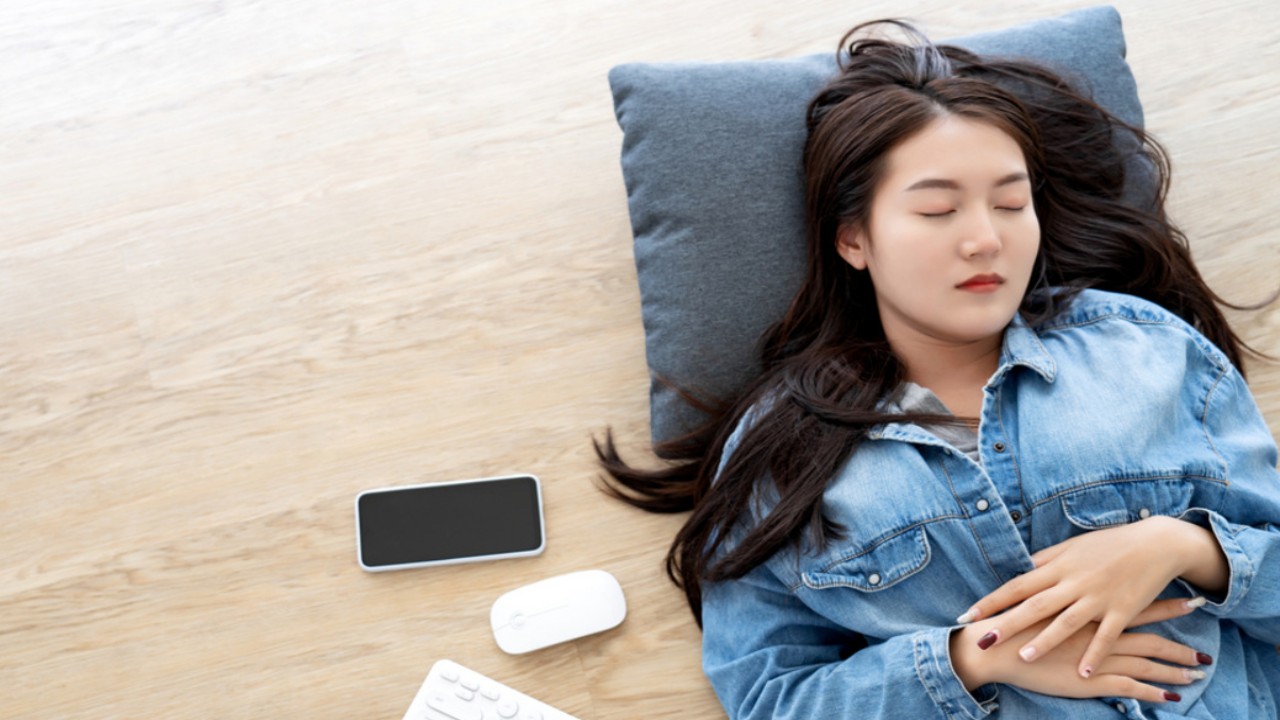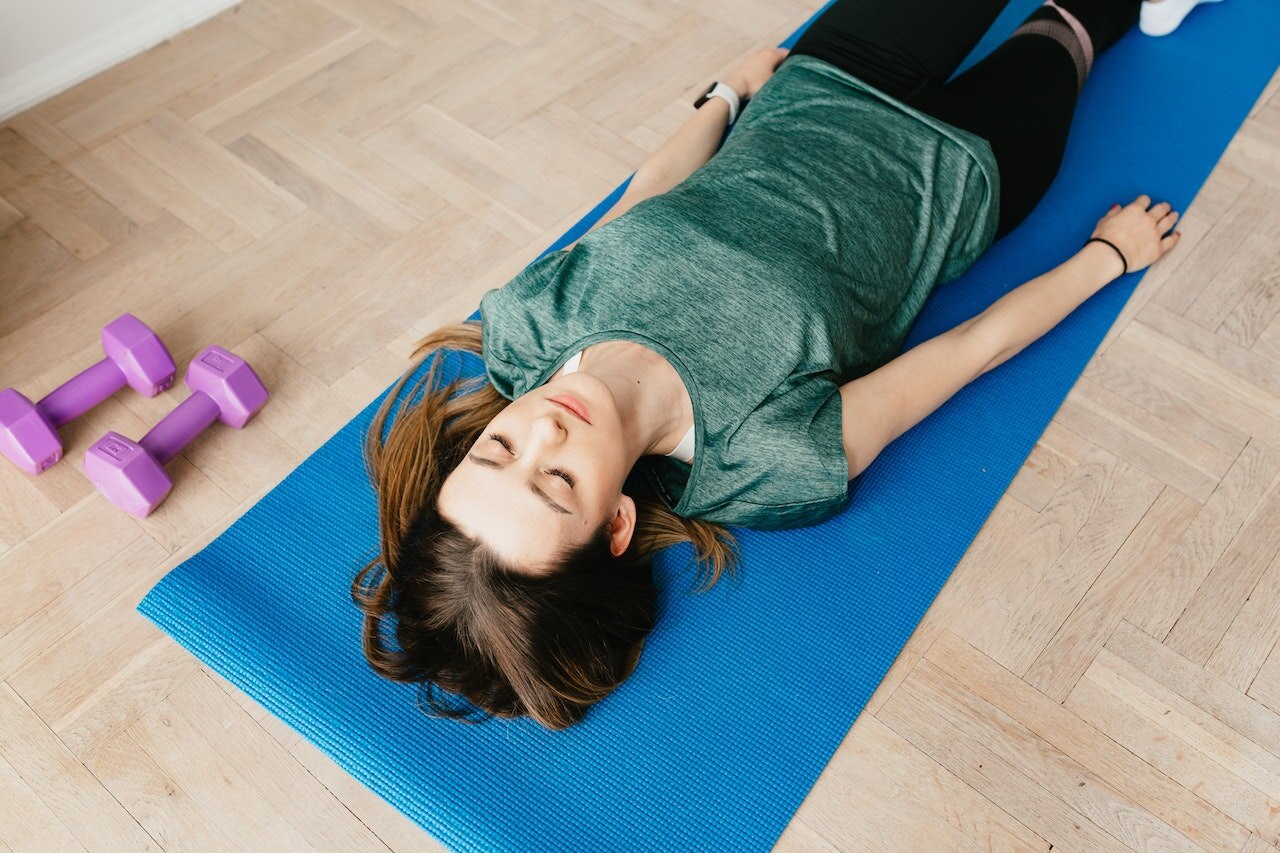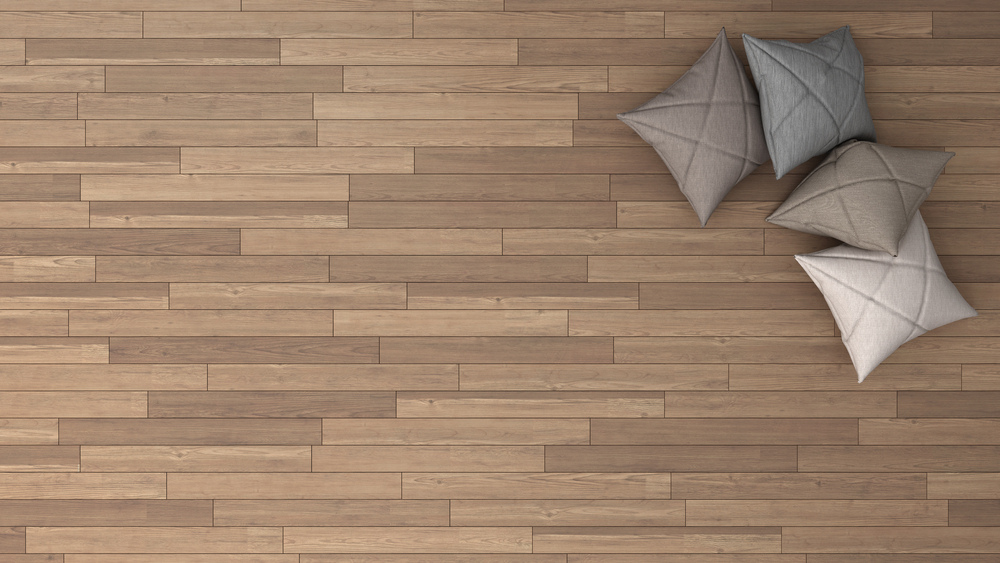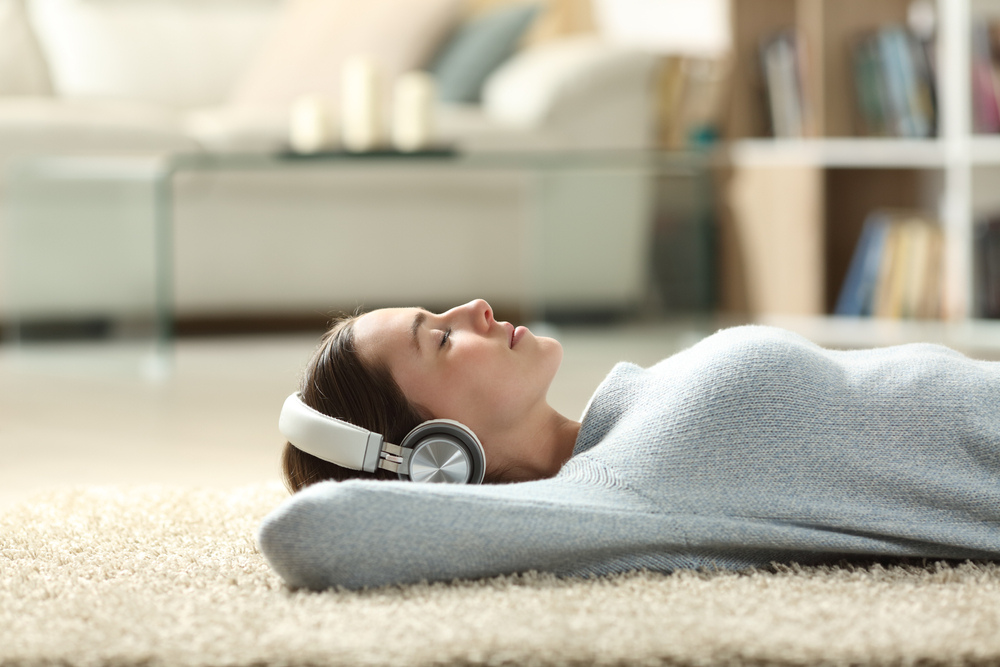7 Remarkable Age-old Benefits of Sleeping on the Floor
Relax your body and mind with this age-old sleeping technique. Unravel the benefits of sleeping on the floor and rejuvenate yourself at the end of a busy day.

Sleep is when your body repairs and rests (1). As your body undergoes immense stress during the day, you should have a comfortable and healthy place to sleep at night. While modern-day technology has its advantages, the ancient tradition of sleeping on the floor never gets old. Many exercises are also floor-based as they provide a firm base to your body during the workout (2). Your sleeping position and the place you sleep can have an impact on sleep quality. Sleeping on the floor is considered a great technique to calm the mind, body, and soul.
In fact, in various cultures, sleeping on the floor is considered a tradition. In various Asian countries, people sleep on the floor as they feel more comfortable getting a good night's sleep on the floor instead of a Western-style bed. Anecdotal evidence suggests that the practice of floor sleeping has various benefits — it may help improve posture, reduce back pain, and promote quality sleep. Read below to understand the potential benefits and check if there are any potential side effects of this practice.
7 Benefits of Sleeping on the Floor

Sleeping on the floor, also known as floor sleeping, has been practiced in various cultures for centuries. Floor sleeping may not be everyone's cup of tea. But there are several benefits to sleeping on the floor:
1. Improved Posture
Sleeping on the floor may keep your spine alignment in place. Sleeping on a hard floor can help you improve your posture over time (3).
Discussing the benefits of sleeping on the floor, our contributor Dr. Allen Conrad, BS, DC, CSCS, of Montgomery County Chiropractic Center, says, “Many patients with poor posture need additional support, as their muscles are underdeveloped and result in soreness. Laying on a solid hardwood floor will sometimes offer additional reinforced low back support for your spine for those with degenerative arthritis. As a result, they tend to feel better when they wake up and feel like they got a good night's sleep vs sleeping in a bed with less support. If you suffer from back arthritis and poor posture try sleeping on the floor instead. If that doesn’t help, consult a Doctor of Chiropractic for a postural exercises examination.”
2. Better Spinal Support
Firm surfaces like the floor can provide more even support to the natural curve of the spine and keep the spine in a neutral position. People can experience reduced back pain over time by sleeping on flatter surfaces (3). Sleeping on soft mattresses or soft surfaces can cause back pain in the long run, as the body sinks in deeply into a soft mattress, leading to body pain. Hence, lying on the floor can help you keep your spine healthy and reduce back aches.
3. Enhanced Blood Circulation
Lying on the floor can help improve blood circulation as there are no pressure points or constraints from mattresses or pillows (4). It also improves your overall quality of sleep.
4. Increased Flexibility
Sleeping on firmer surfaces encourages natural body movements during sleep, potentially improving flexibility and mobility (4).
5. Reduced Pain on Pressure Points
Sleeping on a harder surface can distribute body weight more evenly, minimizing the formation of pressure points that can lead to discomfort or pain. Sleeping on the floor for back pain and sciatica is a great remedy (3).
6. Enhanced Grounding
Some people believe that sleeping on the floor allows for a stronger connection to the earth, providing a sense of grounding and tranquility (3).
7. Easier Temperature Regulation
Sleeping on the floor can help regulate body temperature more effectively, as the lack of cushioning materials allows for better heat dissipation (4). Our contributor Dr. Allen Conrad, says, “When you sleep on the floor, you are lower to the ground. Heat always rises, so by lying on the ground, you can reduce your body temperatures a few degrees by sleeping there. This is especially true if sleeping on a hardwood wood floor during the winter, as the floor will be cooler and without carpet there is less insulation so it will feel like a cooler temperature.”
6 Downsides of Sleeping on the Floor
While some individuals may find benefits of sleeping on the floor, it's important to note that it may not be suitable or comfortable for everyone. Here are ten potential downsides to sleeping on the floor:
1. Lack of Cushioning

The floor provides little to no cushioning, which can lead to discomfort, especially for individuals with bony prominences or pressure-sensitive areas (5).
2. Limited Insulation
Floors can be colder than elevated surfaces, especially in colder climates. This lack of insulation may make it difficult to maintain warmth during sleep (5).
3. Potential to Increase Back Pain

While some individuals relieve back pain by sleeping on the floor, others may experience increased discomfort or spinal misalignment, leading to worsened back and neck pain (6). It is often common in people who prefer soft mattresses and are stomach sleepers.
4. Restricted Airflow
While the opening of the backbone is one of the benefits of sleeping on the floor it could restrict your airflow. Sleeping directly on the floor may restrict air circulation around the body, potentially causing excessive sweating or discomfort during hot weather (7).
5. Allergen Exposure
Floors can harbor dust, allergens, and other particles that may trigger allergies or respiratory issues, especially if not properly cleaned (7). These allergic reactions often cause a runny nose and could make everyday chores difficult to perform.
6. May Lead to Injuries
Injuries or accidents during sleep, like hitting your head or knocking your shoulder, may potentially injure you when sleeping directly on the floor and lead to poor posture (6).
How to Sleep on the Floor?

For people interested in sleeping on the floor, be prepared to try different combinations. Ensure your body feels safe and comfortable when falling asleep and pain-free after waking up. You can follow some of the steps below to have a good night's sleep on the floor.
1. Use a Thin Mattress Or Padding
Instead of sleeping directly on the floor, place a firmer mattress or yoga mat. You can even use a medium-firm mattress on the floor to provide cushioning and insulation (4).
2. Opt for a Supportive Pillow
Choose a supportive pillow that aligns your head and neck with your spine, helping you maintain proper posture while sleeping on the floor (4).
3. Gradually Transition
If you're accustomed to sleeping on a bed, consider gradually transitioning to floor sleeping. Start by spending a portion of the night on the floor and gradually increase the duration (4).
4. Use Additional Blankets for Warmth
Layer blankets or use a thicker comforter to provide insulation and warmth, especially if living in a cooler temperature zone (4).
5. Maintain a Good Posture
When sleeping on the floor, pay attention to your posture. Keep your spine aligned, and avoid twisting or contorting your body to avoid sleeping in a poor posture (8).
6. Experiment with Positions
Find a sleeping position that is comfortable for you. Some people prefer sleeping on their backs, while others find sleeping on the floor more comfortable (8).
7. Consider Room Temperature
Ensure that the room temperature is comfortable for sleep, as the floor may feel cooler than a bed. Adjust the temperature or use additional bedding as needed (4).
8. Keep the Sleeping Area Clean
Keeping the floor clean is important to avoid potential risks caused by dust and allergies for those who sleep on the floor. Regularly clean the floor surface where you sleep to minimize dust, allergens, and dirt accumulation. With this practice, you will gain the maximum benefits of floor sleeping (7).
9. Give It Time
It may take a few nights to adjust to floor sleeping. Give yourself time to adapt and see if it works well for you.
10. Listen to Your Body
Pay attention to how your body responds to lying on the floor. Do that if you feel better sleeping on your back than on your side. Listen to your body and assess this quest accordingly.
Who Should Not Sleep on the Floor?
While floor sleeping can work well for some individuals, it may not be suitable or recommended for others. Here are ten groups of people who may want to avoid or be cautious about sleeping on the floor:
1. Individuals with Existing Back Or Joint Issues
People with chronic back pain, spinal conditions, or joint problems may find floor sleeping exacerbates their discomfort or leads to improper alignment (6).
2. Pregnant Women
Pregnant women often require additional support and comfort during sleep. The floor may not provide adequate cushioning and support for the changing body and growing belly (9).
3. Elderly Individuals
Older adults may have reduced mobility, joint stiffness, or osteoporosis, making sleeping on the floor uncomfortable or risky (6).
4. People with Injuries Or Mobility Issues
Those recovering from injuries or with limited mobility may find it challenging to get up from the floor or maintain a comfortable position without proper support (6).
5. Individuals with Allergies
Sleeping on the floor puts you very close to allergens, like dust or pet dander. These can aggravate your asthma or cause nasal allergies in individuals prone to allergies (7).
6. People with Circulation Issues
Individuals with poor circulation or conditions like peripheral artery disease may experience discomfort or worsened symptoms when sleeping on a hard surface (7).
7. People with Temperature Sensitivity
The floor can be colder than elevated surfaces, which may pose challenges as the body regulates its temperature during sleep (10).
8. Individuals with Pressure Ulcers Or Bedsores
People with existing pressure ulcers or bedsores require specialized support surfaces and may benefit from medical-grade mattresses or cushions instead of floor sleeping (7).
9. Children
Depending on their age, they may not find sleeping on the floor comfortable. Some children are more prone to injuries when sleeping on the floor and could have accidents.
10. Those with Personal Preference Or Discomfort
Personal preference and comfort are essential. If sleeping on the floor is uncomfortable and does not give you a good night's sleep, discontinue.
Conclusion
The benefits of sleeping on the floor are countless, and you can explore them individually. Start by placing your current mattress on the floor and gradually thinning it into a yoga mat. Move to sleep on the bare floor only when your body is ready. People with back issues should consult a doctor and watch out for the side effects of sleeping on the floor. Pregnant women and elders should not sleep on the floor as it could hamper their well-being and cause joint pain. Select your sleeping position wisely to get the maximum benefit from this technique.
Contributor: Dr. Allen Conrad, BS, DC, CSCS, and Owner of Montgomery County Chiropractic Center





 JOIN OUR WHATSAPP CHANNEL
JOIN OUR WHATSAPP CHANNEL















































































